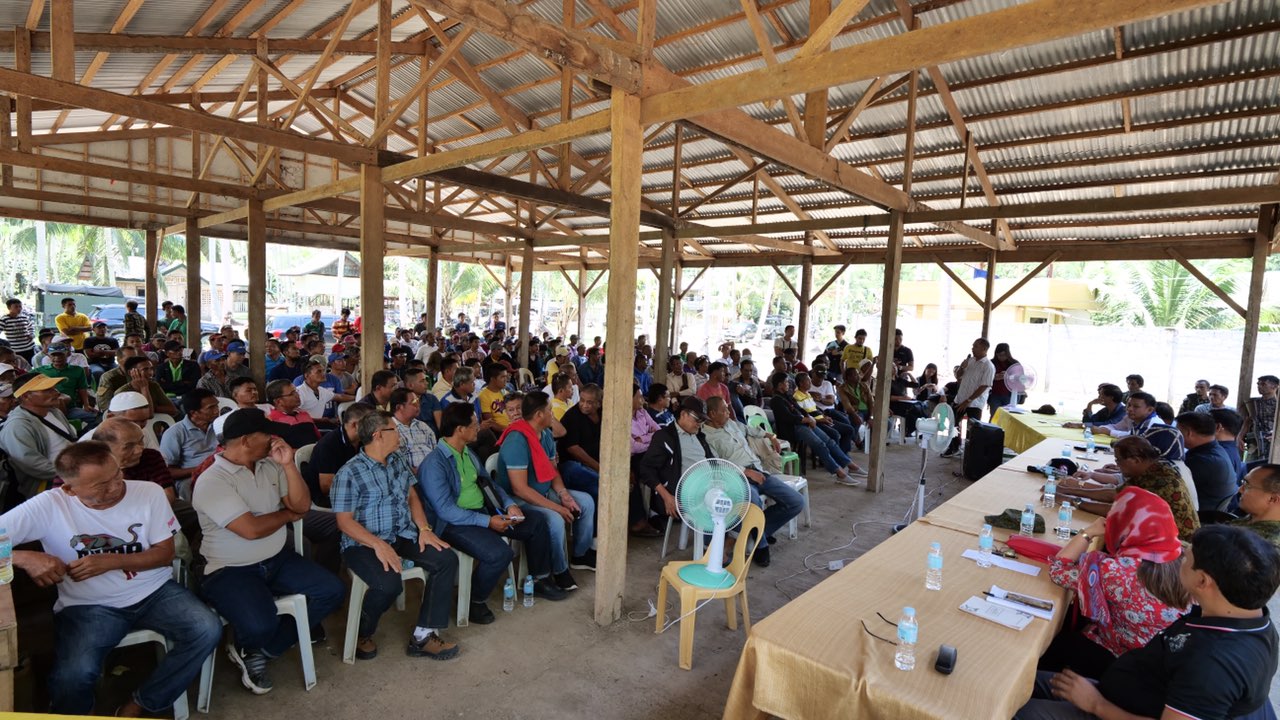
CAMP RAJAMUDA, PIKIT, NORTH COTABATO (July 25, 2019) – Government of the Philippines (GPH) Implementing Panel members arrived at this Moro Islamic Liberation Front (MILF) camp Tuesday, 19 years after the Estrada Administration’s all-out-war against the MILF.
The historic visit marks the first time the GPH panel has set foot on the camp, which was considered one of the major strongholds of the MILF when it was still waging an armed struggle against the national government.
The visit is part of ongoing preparations for the decommissioning of MILF combatants and the transformation of their camps into show windows of peace and development under the Normalization Track of the Comprehensive Agreement on the Bangsamoro (CAB).
The GPH panel was led by its chair Office of the Presidential Adviser on the Peace Process (OPAPP) Executive Director Gloria Mercado, and was joined by OPAPP Assistant Secretary Acel Papa and Bangsamoro Autonomous Region in Muslim Mindanao (BARMM) Minister of Transportation and Communication Dickson Hermoso.
Touching base with communities
According to Mercado, the panel’s visit aims to inform those residing in the six government-acknowledged MILF camps on developments in the Normalization process, as well as for the panel members to see for themselves the situation in these communities.
“We would like to see the ‘spatial realities’ in these MILF camps. We need to understand that each of these camps has a life of its own,” she explained.
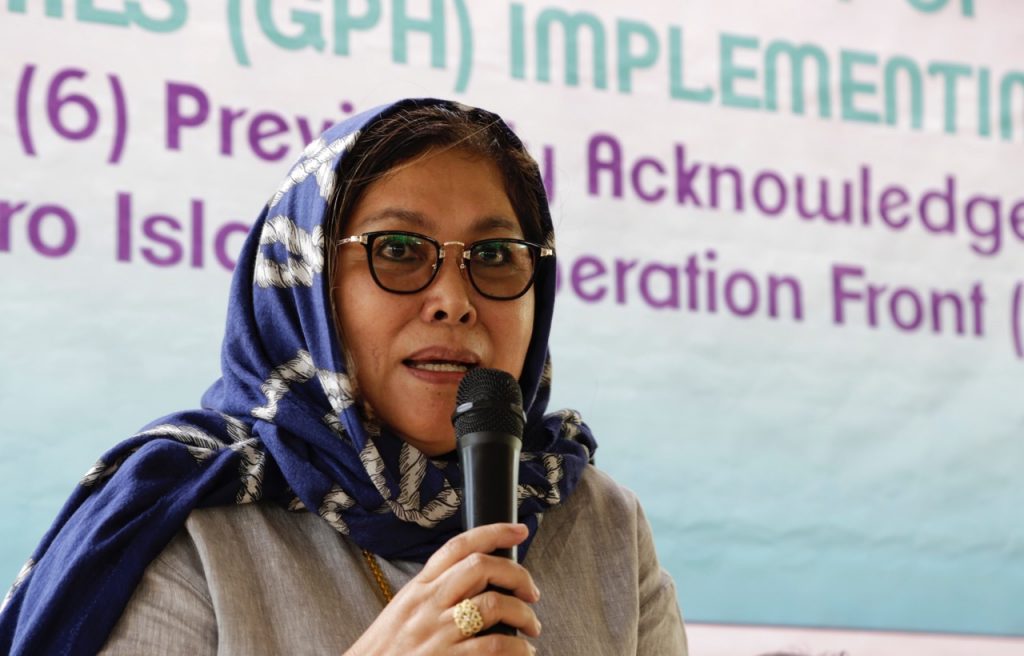
Mercado said the panel was directed by no less than Presidential Peace Adviser Carlito G. Galvez Jr. to conduct the camp visits. Similar visits have been made to camps Bilal and Bushra in Lanao del Norte and Lanao del Sur, and to Abubakar in Maguindanao.
She related that during their visit to Camp Abubakar, the panel members witnessed the major role being played by women in the community, particularly how they are making a positive impact on the lives of residents there.
“Seeing these realities on the ground, there are a lot of policy enhancements that can be done by OPAPP in collaboration with its partners that can help further capacitate these women-leaders,” Mercado said.
Lessons of the past
For his part, Hermoso underscored the importance of looking back and learning from the lessons of the past. He recalled the all-out-war in 2000 wherein Camp Rajamuda became the site of intense gun battles between government troops and MILF fighters.
“The current generation should not forget the struggles of their forebears. This (CAB) is the result of 17 years of negotiations [between the government and MILF]. Let us not waste this opportunity,” Hermoso said.
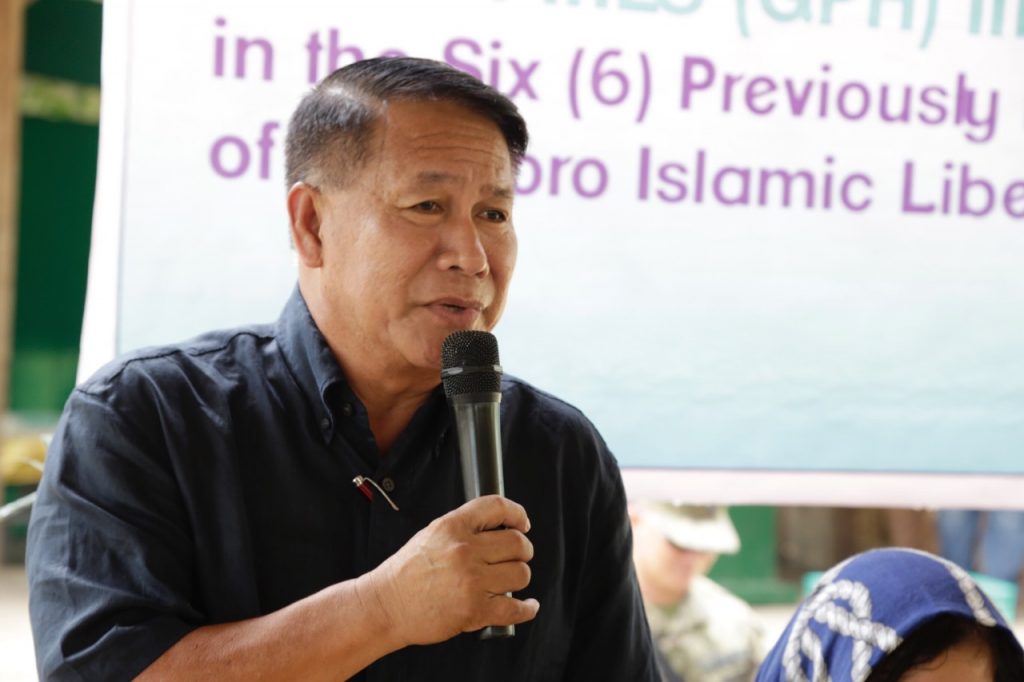
According to Hermoso, who heads the Joint Peace and Security Committee, 200 Joint Peace and Security Teams (JPSTs) shall be created to ensure the security of residents within the MILF camps when the decommissioning process begins.
He said the JPSTs will shall be composed of soldiers, policemen and members of the MILF’s Bangsamoro Islamic Armed Forces (BIAF). This teams will serve until the new transition Bangsamoro government ends its term in 2022.
“The war has ended. This is no longer an armed struggle. The President said that there should be convergence. No one should be left behind,” Hermoso said.
Social healing
Meanwhile, Papa, who heads the Transitional Justice and Reconciliation component of the Normalization Track, explained the TJR will address human rights violations, legitimate grievances, historical injustices, and marginalization committed against the Bangsamoro people.
While noting that the implementation of the TJR “is very broad,” Papa said the passage of an amnesty bill in Congress has been proposed as an administration priority legislation.
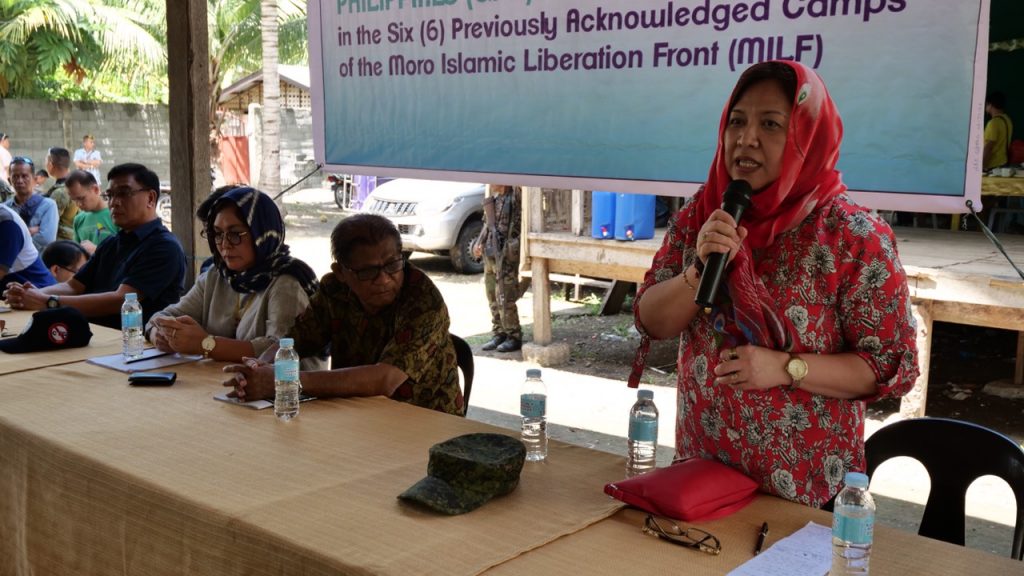
She said the history of the Bangsamoro people, particularly their struggles, should be “memorialized.”
“The youth should not forget the lessons of the past so that there will no longer be a repeat [of what happened].”
Sustaining the gains of peace
At the same event, Jack Abas, commander of the MILF-BIAF Eastern Mindanao Front and now a member of the BARMM Parliament, underscored the importance of the GPH panel’s visit to the camp, saying that “it is in connection to our aspiration for peace.”
Abas said through its visit, the panel would like to “introduce” the CAB’s Normalization Track to residents in the camp “so that they can get our (people) opinion and there will be no misunderstanding” between both sides.
“It is important that at this point that we can implement [the Normalization process]. This is our obligation. This peace is for our people,” the grizzled MILF commander said.
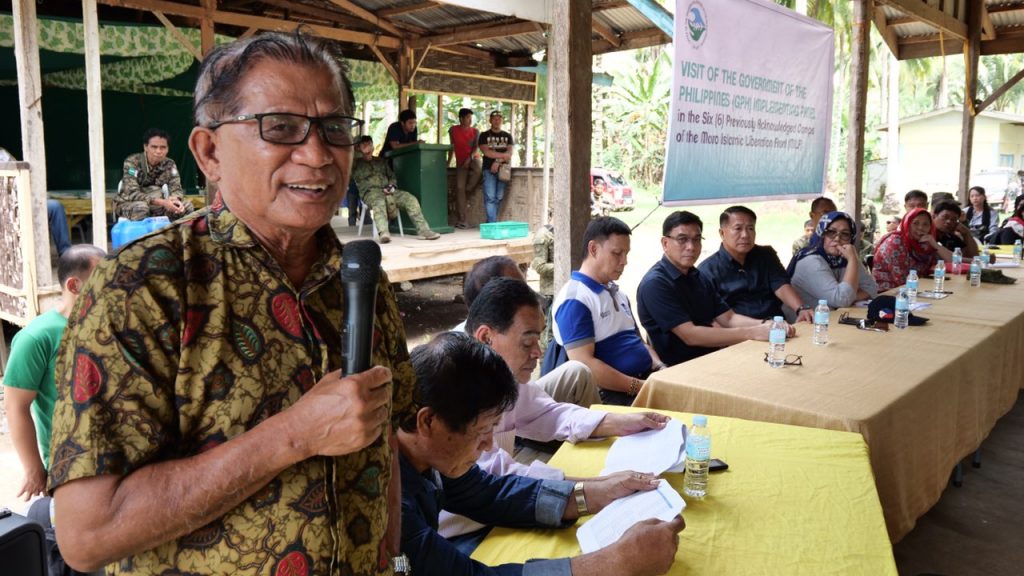
Abas also lauded the various ceasefire mechanisms on the ground that have helped resolve peace and security issues and prevented the outbreak of conflict in the area. “There are no more skirmishes. We (MILF) now have very good coordination with the AFP.”
Securing communities
In the meantime, General Afred Rosario, commander of the AFP’s 6th Infantry Division, assured the MILF that the military’s primary purpose is to ensure the security of residents in communities where they are stationed.
“The soldiers deployed here are for your safety. They are not to go after you but to secure you,” Rosario said.
He also stressed that the AFP fully supports the Bangsamoro peace process, saying, “We are here to support the Bangsamoro Organic Law and the BARMM.”
Dialogue is key
In his closing remarks, Director Wilben Mayor, OPAPP spokesperson, said that key concerns in the community can be resolved through constant dialogue.
“Let us all be open so that we shall be able to surface these issues and find solutions,” Mayor said.
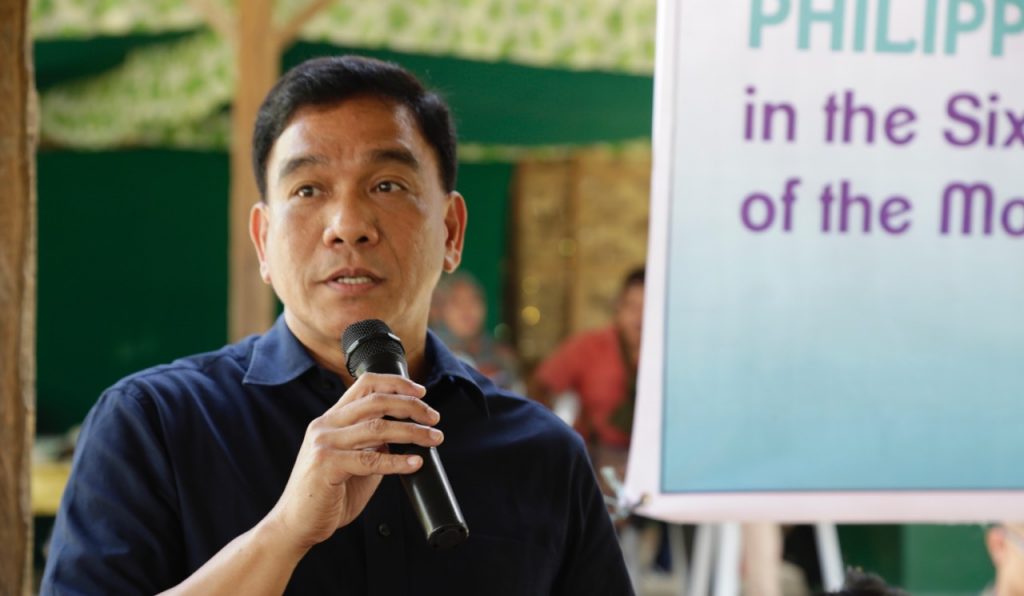
“The government is here not to provide perfect solutions. But we believe that these efforts will all lead to building long-lasting peace in the country,” he concluded.
Decommissioning process
Around 12,000 or 30 percent of the MILF combatants will be decommissioned during the second phase of the decommissioning process which is scheduled to begin on September 7, 2019.
The decommissioning process is part of the Normalization track’s goal of putting MILF fighters and their weapons beyond use, and enabling them to achieve their desired quality of life through sustainable livelihood and political participation in a peaceful and deliberative society.
The Normalization Phase has four main components, which include: security, socio-economic development, confidence-building measures, and transitional justice and reconciliation.
Under the plan, 30% of the MILF combatants and weapons are expected to be decommissioned this year. At least 35% will undergo the same process next year, while the remaining fighters will be decommissioned by 2022 in time for the signing of the Exit Agreement under the CAB. ###
https://peace.gov.ph/2019/07/gph-implementing-panel-historic-visit-camp-rajamuda/

No comments:
Post a Comment
Note: Only a member of this blog may post a comment.